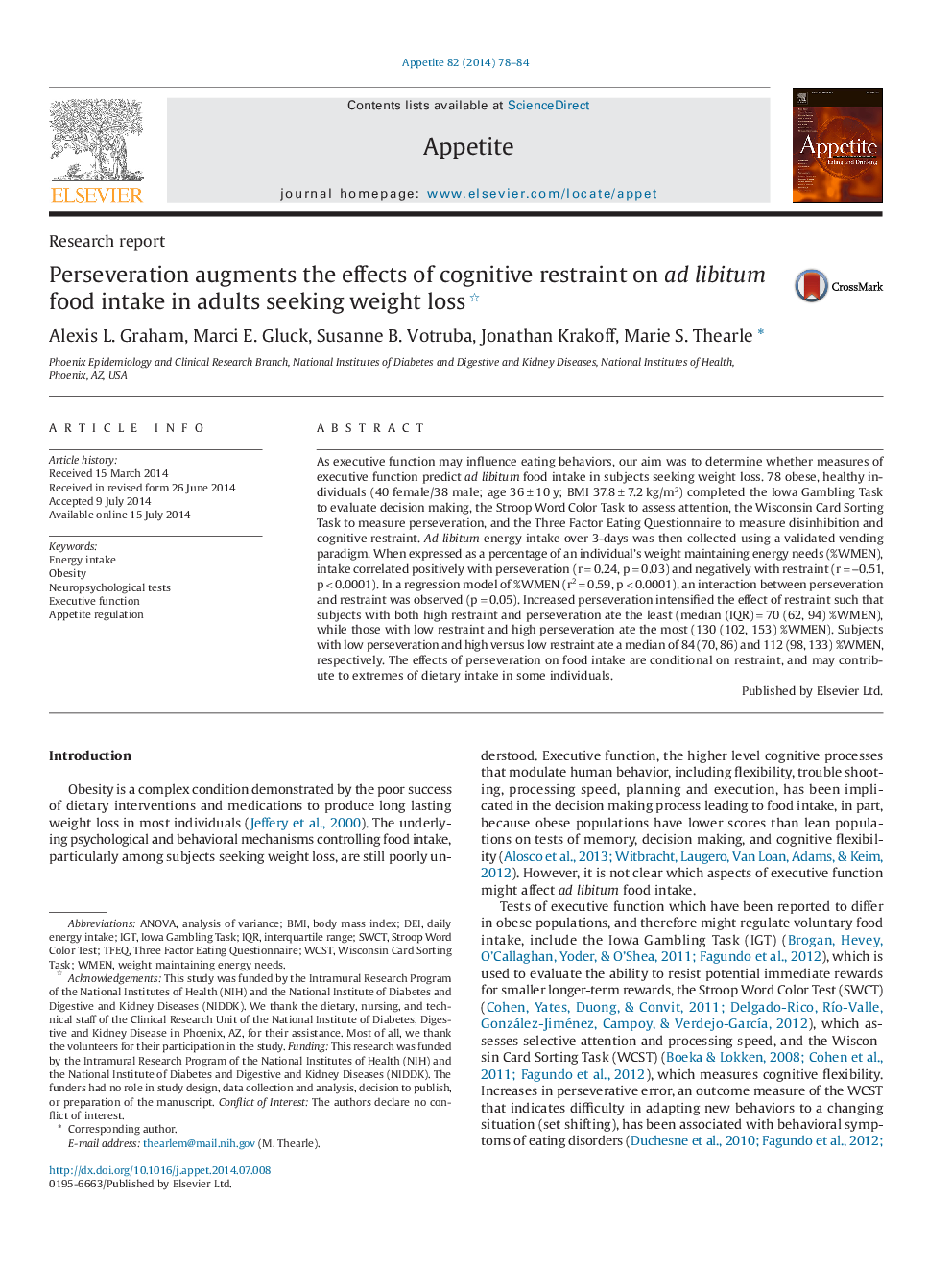| کد مقاله | کد نشریه | سال انتشار | مقاله انگلیسی | نسخه تمام متن |
|---|---|---|---|---|
| 939466 | 1475398 | 2014 | 7 صفحه PDF | دانلود رایگان |

• Effects of executive functioning on ad libitum food intake in adults were assessed.
• These adults were seeking weight loss with varying amounts of cognitive restraint.
• An interaction between perseveration and restraint was observed on 24 h food intake.
• Those subjects with high perseveration and high restraint ate the least.
• However, unrestrained subjects with high perseveration ate the most.
As executive function may influence eating behaviors, our aim was to determine whether measures of executive function predict ad libitum food intake in subjects seeking weight loss. 78 obese, healthy individuals (40 female/38 male; age 36 ± 10 y; BMI 37.8 ± 7.2 kg/m2) completed the Iowa Gambling Task to evaluate decision making, the Stroop Word Color Task to assess attention, the Wisconsin Card Sorting Task to measure perseveration, and the Three Factor Eating Questionnaire to measure disinhibition and cognitive restraint. Ad libitum energy intake over 3-days was then collected using a validated vending paradigm. When expressed as a percentage of an individual's weight maintaining energy needs (%WMEN), intake correlated positively with perseveration (r = 0.24, p = 0.03) and negatively with restraint (r = −0.51, p < 0.0001). In a regression model of %WMEN (r2 = 0.59, p < 0.0001), an interaction between perseveration and restraint was observed (p = 0.05). Increased perseveration intensified the effect of restraint such that subjects with both high restraint and perseveration ate the least (median (IQR) = 70 (62, 94) %WMEN), while those with low restraint and high perseveration ate the most (130 (102, 153) %WMEN). Subjects with low perseveration and high versus low restraint ate a median of 84 (70, 86) and 112 (98, 133) %WMEN, respectively. The effects of perseveration on food intake are conditional on restraint, and may contribute to extremes of dietary intake in some individuals.
Graphical AbstractFigure optionsDownload as PowerPoint slide
Journal: Appetite - Volume 82, 1 November 2014, Pages 78–84